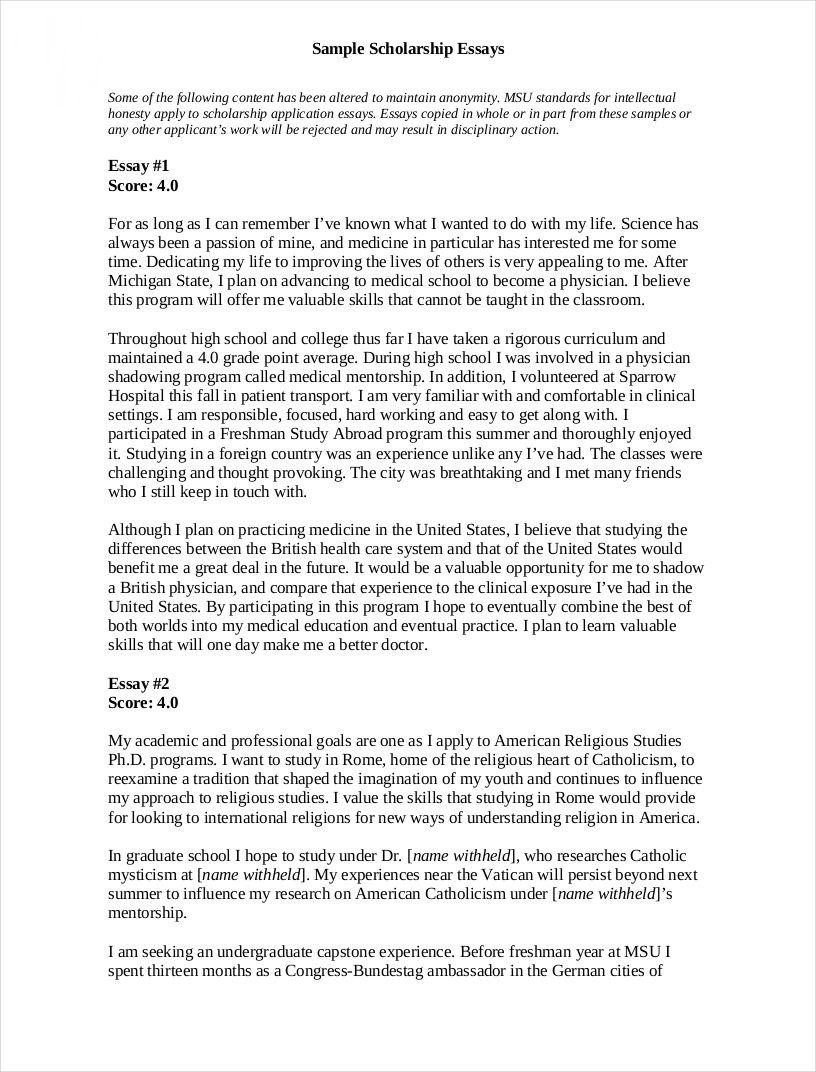Physical Address
304 North Cardinal St.
Dorchester Center, MA 02124
Physical Address
304 North Cardinal St.
Dorchester Center, MA 02124

Scholarships serve as a vital gateway for students seeking higher education, alleviating the seemingly insurmountable financial burden that accompanies tuition fees. For many, earning a scholarship can make the difference between attending their dream school and opting for a community college due to cost constraints. According to a recent report, scholarships can help students:
Scholarships not only support students financially but also boost their confidence and motivation, encouraging them to strive for excellence.

With the increasing number of scholarships available, prospective applicants often grapple with essay requirements. Many of these essays revolve around common prompts designed to gauge a student’s character, intentions, and motivations. Here’s a look at some typical essay prompts that students encounter:
Understanding these prompts is crucial; it empowers students to tailor their responses effectively. By preparing thoughtful essays that resonate with scholarship committees, applicants can significantly increase their chances of receiving the funding they need.
When applying for scholarships, sharing personal achievements is crucial to demonstrate your potential and dedication. It’s not just about listing bullet points; instead, it’s an opportunity to weave a narrative that showcases growth and perseverance. For instance, think about a time you excelled academically or took on a leadership role. You might mention:
These accomplishments not only highlight your capabilities but also paint a picture of who you are as a candidate.
Following the discussion of past achievements, it’s important to connect these experiences to your future goals. Scholarship committees want to know how their investment in your education will yield returns in the form of future contributions to society. Consider addressing:
By clearly articulating your aspirations, you not only show ambition but also assure scholarship committees that their support will help shape a promising future.
Every individual’s journey is paved with challenges, and it’s these obstacles that often shape who we become. When discussing adversities in scholarship essays, it’s vital to illustrate how these experiences have enriched your character and influenced your aspirations. Here are a few categories of challenges you might consider sharing:
By framing these experiences authentically, you not only highlight your emotional journey but also open up a dialogue about resilience and determination.
Resilience is more than just bouncing back; it’s about using your experiences as stepping stones toward personal growth. After describing the challenges faced, focus on the lessons learned and the strength gained. Here’s how to effectively convey these transformations:
By weaving together these elements in your essay, you can create a compelling narrative that not only showcases your resilience but also positions you as a valuable candidate for scholarships.
Engaging in volunteer work is not only a way to give back but also an opportunity to grow personally and develop valuable skills. When potential scholarship candidates highlight their volunteer experiences, they illustrate their commitment to community service, which is often a crucial element in scholarship applications. Examples of involvement might include:
Each of these activities tells a unique story about dedication, service, and community engagement.
The impact of one’s social contributions reverberates far beyond the immediate community. As students share their experiences in scholarship essays, they should reflect on the meaningful changes brought about by their volunteering. Consider discussing:
By showcasing both involvement and impact, students can convey their dedication to making a difference, which resonates strongly with scholarship committees.

Articulating your academic interests is an essential step in drafting a compelling scholarship essay. Scholarship committees want to know not just what you want to study, but why it excites you. This is your chance to provide insight into your educational journey. Consider these points when describing your academic interests:
By weaving personal anecdotes into your narrative, you create a clearer picture of your enthusiasm and commitment.
Once you’ve outlined your academic interests, it’s crucial to connect these studies to your career aspirations. Committees want to see how your academic path informs your future. Here are some ways to make those connections:
By effectively linking your academic pursuits to your career plans, you provide a comprehensive view of your aspirations, reinforcing your commitment to your field of study.